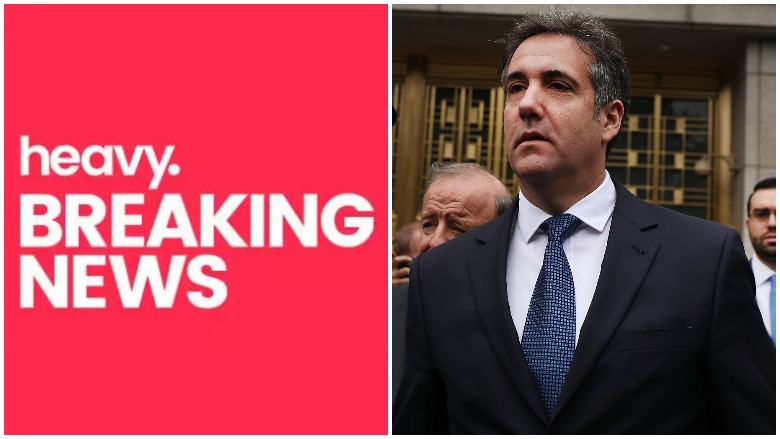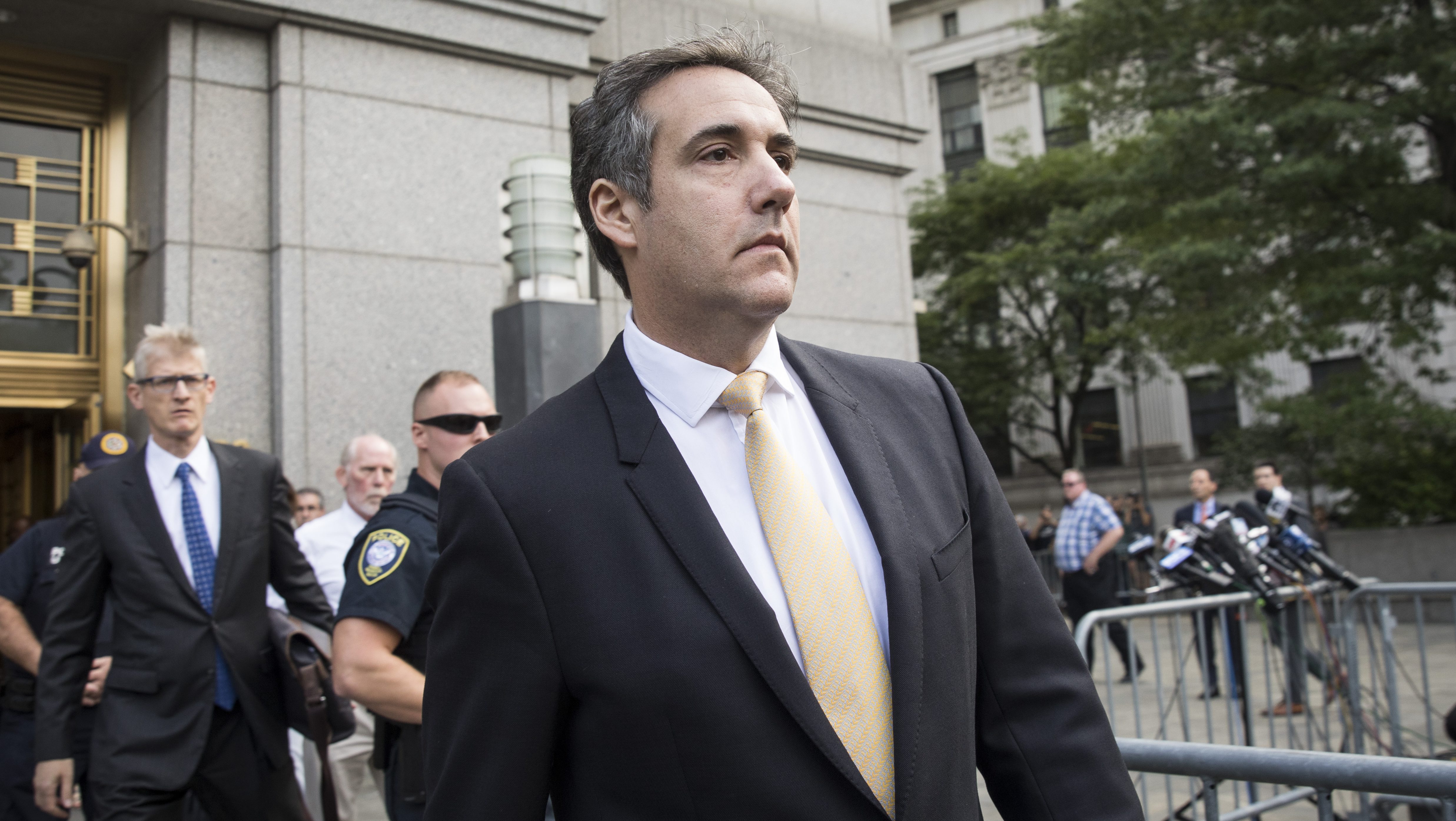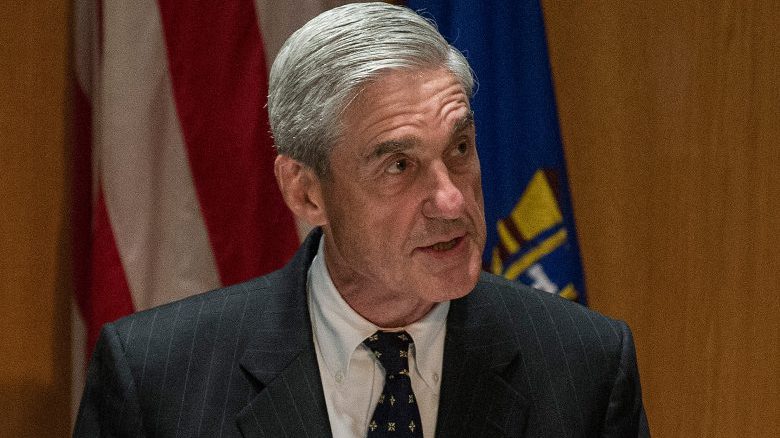
Getty Michael Cohen
Michael Cohen has been sentenced to three years in federal prison, after pleading guilty to crimes including lying to Congress and campaign finance violations. The sentence was handed down Wednesday, December 12 by U.S. District Court Judge William Pauley for the Southern District of New York.
Cohen stated to the court before the sentence was imposed that he took responsibility for his actions. He added, “My own weakness was blind loyalty to the man that caused me to choose the path of darkness,” in reference to his former client, President Donald Trump.
This comes a few days after Special Counsel Robert Mueller and prosecutors with the Southern District of New York filed separate sentencing memorandums to the court. Robert Mueller did not recommend a shortened prison sentence for Michael Cohen in his memo filed late Friday, December 7. In the memo, Mueller states that Cohen intentionally lied to Congress about business dealings with Russia multiple times. But Mueller did acknowledge that Cohen’s eventual cooperation had been helpful.
The District Attorneys took a harsher tone. They wrote that Cohen deserved a “substantial prison term” for his confessed crimes.
Here’s Mueller’s memo in full:
Mueller: Cohen Repeatedly Lied to Congress About the ‘Moscow Project’

GettyMichael Cohen, President Donald Trump’s former personal attorney and fixer, exits federal court, August 21, 2018 in New York City.
The sentencing memo begins by detailing the Moscow Project. This was a proposed project to build a Trump Tower in Russia’s capital city. As President Trump himself has stated publicly, the deal never came to fruition.
Mueller explained that Michael Cohen lied to Congress about how long this proposed deal was negotiated. Mueller said Cohen withheld information from the Senate Select Committee on Intelligence, the House Permanent Select Committee on Intelligence, and the Special Counsel’s office. Cohen’s false statements began in August of 2017, when he submitted a written statement. Mueller says Cohen continued to lie for an entire year, including in oral testimony before Congress.
Cohen admitted to the Special Counsel that he had lied about the Moscow Project for two reasons. First, to “minimize links between the Moscow Project and Individual 1.” (Individual 1 has been used in recent court documents related to this case to reference President Trump).
The second reason was to “give the false impression that the Moscow Project had ended before the Iowa caucus and the first presidential primaries, in hopes of limiting the ongoing Russia investigations being conducted by Congress and the SCO.” Meaning, the goal had been to convince investigators that then-candidate Trump was not involved in any deals in Russia later on in the campaign.
Mueller explains in the memo that the Moscow Project holds national significance because building a Trump Tower in Moscow would likely have required “the assistance of the Russian government.” The U.S. intelligence agencies have all concluded since then that Russia worked to interfere in the 2016 election.
“The fact that Cohen continued to work on the project and discuss it with Individual 1 well into the campaign was material to the ongoing congressional and SCO investigations, particularly because it occurred at a time of sustained efforts by the Russian government to interfere with the U.S. presidential election. Similarly, it was material that Cohen, during the campaign, had a substantive telephone call about the project with an assistant to the press secretary for the President of Russia.”
Mueller: Cohen’s Lies Were ‘Deliberate & Premeditated’
Michael Cohen is not your typical cooperating witness, due to the nature of how he eventually confessed to lying. Robert Mueller makes the distinction that Cohen’s testimony to Congress was written and thought-out. The lies were planned well in advance.
“His false statements did not spring spontaneously from a line of examination or heated colloquy during a congressional hearing. They started in a written submission that he chose to provide to both houses of Congress ahead of his appearances. These circumstances show a deliberate effort to use his lies as a way to set the tone and shape the course of the hearings in an effort to stymie the inquiries.”
Mueller goes on to explain that Cohen then shared his story with the public. He said in media interviews that the Moscow Project had “terminated in January of 2016.” Mueller writes that by doing this, Cohen was putting his statements out there for other witnesses to see and trying to “shift the timeline of what had occurred in the hopes of limiting the investigations into possible Russian interference in the 2016 U.S. presidential election—an issue of heightened national interest.”
Mueller: Cohen Has Accepted Responsibility For His His False Statements & His Assistance Was Useful to the Investigation

GettyRobert S. Mueller III.
Robert Mueller explains in the sentencing memo that Michael Cohen’s information was helpful to the investigation in four aspects. “First, the defendant provided information about his own contacts with Russian interests during the campaign and discussions with others in the course of making those contacts.”
This included information about Russian nationals attempting to get in touch with the Trump campaign. Mueller lists an example; someone who claimed to be a “trusted person” in the Russia Federation proposed setting up a meeting between Donald Trump and President Putin. “The person told Cohen that such a meeting could have a ‘phenomenal’ impact ‘not only in political but in a business dimension as well.'” Cohen did not accept that invitation.
Second, Cohen provided information about “certain discrete Russia-related matters” that had to do with business executives within Trump’s company. Mueller did not name names.
Third, Cohen was able to provide the Special Counsel with information about “persons connected to the White House during the 2017–2018 time period.” The fourth aspect in which Cohen was helpful to the investigation was in explaining how his original statements, submitted to Congress, were prepared.
Mueller wrote in the memo that by cooperating with investigators, Cohen had shown a willingness to accept responsibility for submitting false statements to Congress. Mueller did not recommend a lighter sentence. In essence, he appeared to agree with the Southern District of New York prosecutors, who are calling for Cohen to serve a “substantial” prison sentence. Mueller wrote, “The sentence imposed should reflect the fact that lying to federal investigators has real consequences, especially where the defendant lied to investigators about critical facts, in an investigation of national importance.”
The U.S. Attorney’s Office Has Asked For a ‘Substantial Prison Term’ For Michael Cohen
The U.S. Attorney for the Southern District of New York’s own sentencing memo was also filed late Friday, December 7. It states that the terms of Cohen’s plea deal stipulate a sentence of 51 to 63 months in prison. The prosecutors argue that Cohen does not deserve leniency, stating that he “repeatedly used his power and influence for deceptive ends.”
“While the Office agrees that Cohen should receive credit for his assistance in the SCO investigation, that credit should not approximate the credit a traditional cooperating witness would receive, given, among other reasons, Cohen’s affirmative decision not to become one. For these reasons, the Office respectfully requests that this Court impose a substantial term of imprisonment, one that reflects a modest downward variance from the applicable Guidelines range.”
Here is that memo in full: